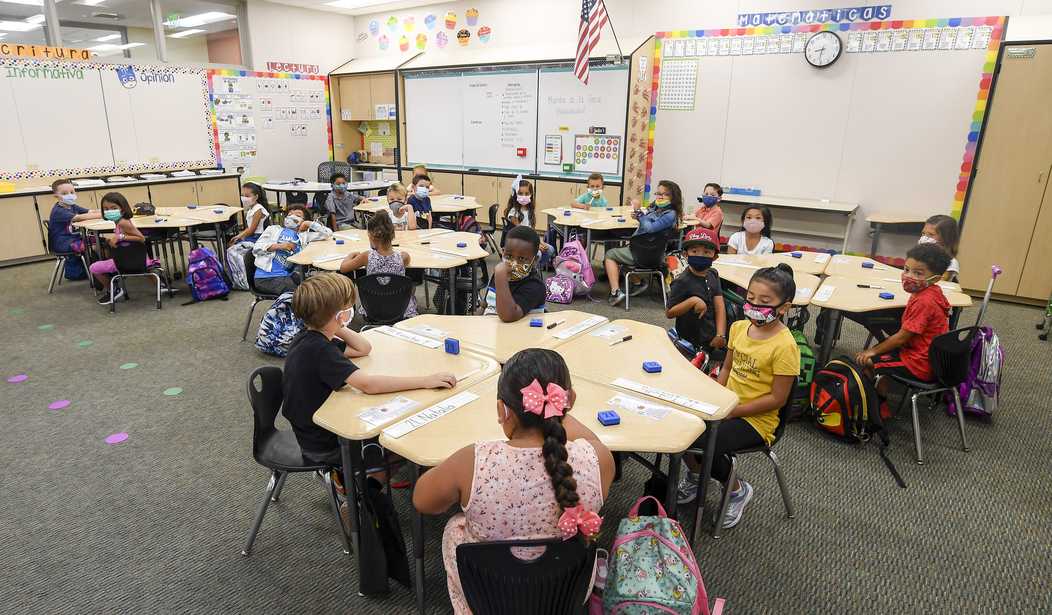Students cannot officially change their names at school. Earlier this year, the New York Times reported something most of us have encountered firsthand or in the news. Teachers allowed a girl to sign her schoolwork with a boy's name and be referred to with male pronouns without parental notification or consent. The student’s mom, Mrs. Bradshaw, said, “There was never any word from anyone to let us know that on paper and in the classroom, our daughter was our son.” A counselor explained that the school was not required to notify the parents because the student did not want “his” parents to know. According to district and state policies, the child’s wishes should be respected despite the complicating factor that their child had been previously diagnosed with ADHD, PTSD, and anxiety disorder.
The Colorado Youth Advisory Council Committee (COYAC) comprises students and legislators and is a leader in nonlegal name changes at school. COYAC started in 2008 to foster student engagement within the legislative framework, enabling them to “scrutinize, assess, and converse on the various factors, concerns, and requirements impacting the young population” of Colorado. COYAC has forty student members representing the 35 state senate districts and Ute Indian tribes. Ten years ago, COYAC’s legislative focus was on Narrowing the Achievement Gap, Exploring Jobs and Higher Education Opportunities, and Access to Behavioral Health Care.
COYAC has taken a giant leap from its more mainstream beginnings. In a recent meeting, COYAC students proposed six bills to legislators, with Bill 1 about non-legal name changes in schools, allowing children to choose their names and pronouns without parental consent, and requiring schools to implement guidelines for not disclosing this information to parents by the 2024-25 school year. It’s hard to imagine this brazen move to enforce policies that keep parents in the dark.
And it’s a move that some states are lining up to head off. Legislation in at least ten states stipulates that teachers, staff, and students are not mandated to use a student’s chosen pronouns or names if they do not correspond to the sex assigned at birth. In six states, educators must inform parents if a child asks to use different pronouns or names. These laws comport the rights of parents in the lives of their children in the new K-12 environment that seeks to elevate a child’s inklings toward so-called gender changes without parental involvement.
Recommended
Notably, disallowing students to change their pronouns and names in this way leads to restricting opposite-sex bathroom use, sports participation, and discussions about gender identity, as well as access to gender-affirming care. (That last phrase is nonsensical since nothing is caring or affirming about adults at school manipulating kids to believe they should attempt to modify and mutilate their God-given bodies.)
Introduced primarily since May 2022, these laws are defended by those seeking to protect parental education rights. In addition, lawsuits in at least six states challenge school policies supportive of social transitions, claiming infringement of parental rights under the 14th Amendment.
The states with such laws that support these rights are Alabama, Arkansas, Florida, Indiana, Iowa, Kentucky, Montana, North Dakota, Tennessee, and Utah. Two bills await the governor's decision in Louisiana, while Arizona saw a veto. The laws vary, with some requiring parental notification and approval, banning certain educational content, or permitting noncompliance based on religious or moral convictions. Tennessee's law frames the issue as free speech for teachers. Utah’s law, like Alabama’s, doesn’t directly address pronouns but limits changes to educational records without parental consent, which is already enshrined in FERPA.
Speaking of FERPA, federal law generally precedes state law under the Supremacy Clause of the U.S. Constitution. According to FERPA, the Federal Educational Rights and Privacy Act, parents can review their child’s student records, and they have the right to request that the school change their child’s name and gender marker on their records if they feel they are incorrect. An example is records that have been altered by the school at the student’s request alone. Students over the age of 18 or who are in post-secondary education are eligible and can do the same thing as their parents. However, students under 18 are not eligible to request these changes, and schools, by extension, should not make these changes.
If a parent is curious to see if their child’s name or gender pronouns have been changed in the school records without their consent, they have every right to do so and to request a change back to their given name and birth sex if the school changed them without their permission.
Parents and family members, talk to your kids about gender conversations and emphasis at school. Ask them what is being pushed by school officials in the classroom, online, playground, lunchroom, and more. Kids are being pulled away from their parents by the state through the education system, and it is the job of families to stand up, step in, and stop it.
Tamra Farah has twenty years of experience in public policy and politics, focusing on protecting individual liberty and promoting limited government. She has worked at the senior and director level for Americans for Prosperity and FreedomWorks, crisis pregnancy centers, and is the President of AmericanStrategies.org.
























Join the conversation as a VIP Member